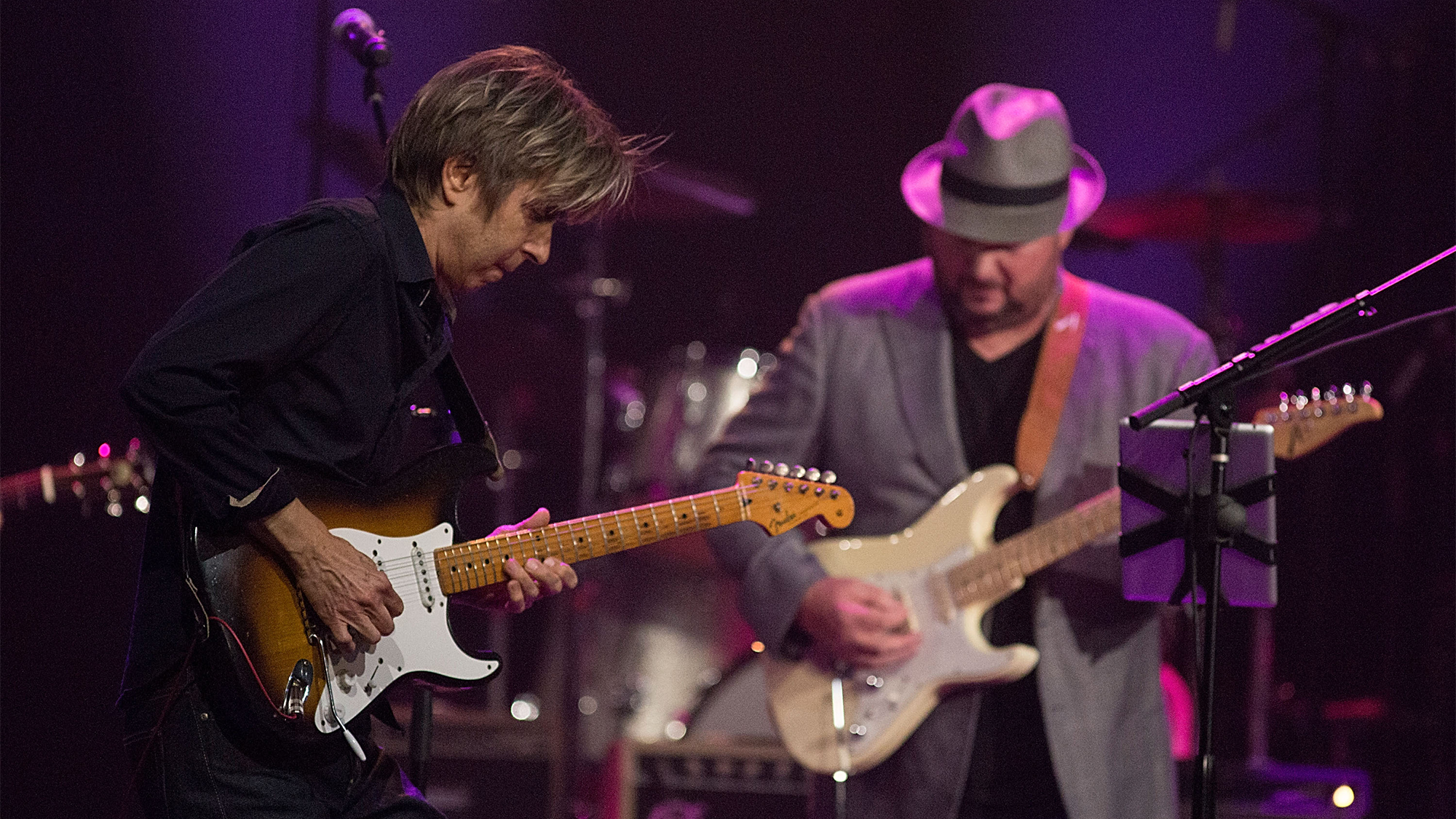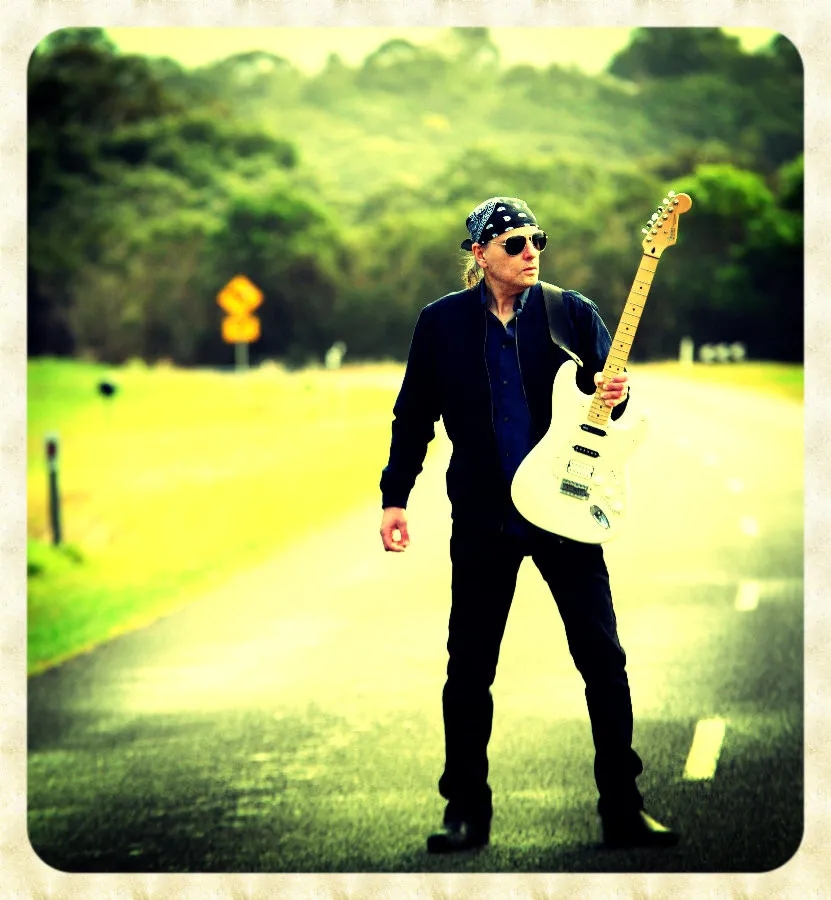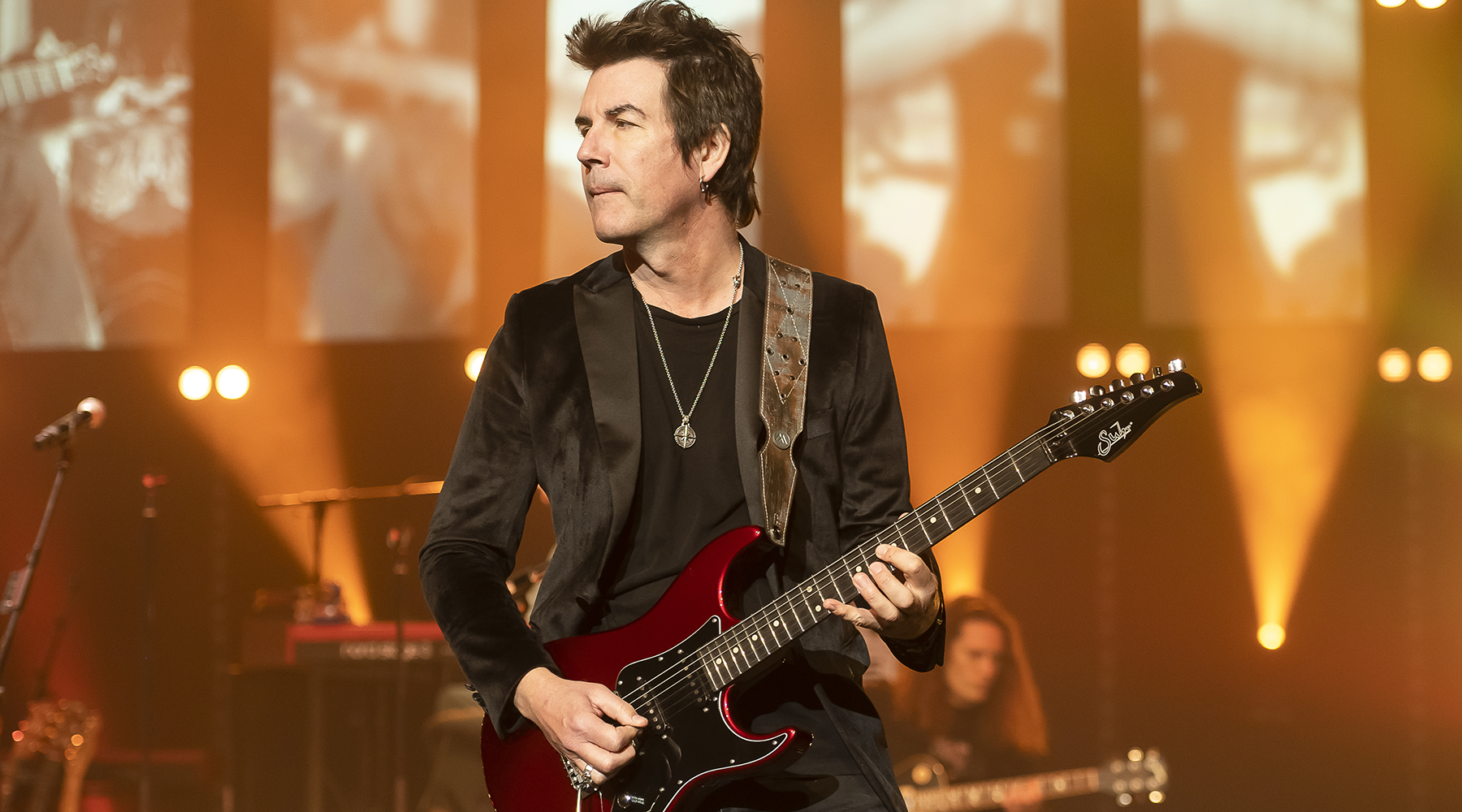"When they left town, I went to the airport and got to meet Ritchie, and he thanked me for covering for him." Christopher Cross recalls filling in for a sick Ritchie Blackmore on Deep Purple's first-ever show in the U.S.
The man behind "Ride Like the Wind" gets support for his tale from Eric Johnson, whose band opened for Deep Purple that night

When Christopher Cross came out of nowhere to score big time with his 1979 self-titled debut album, many assumed he was an overnight sensation. At the 23rd Annual Grammy Awards held in February 1981, Cross would take home five Grammys for the disc including, for the first time ever, four of the most prestigious awards: Record of the Year and Song of the Year (both for the single “Sailing”), Album of the Year and Best New Artist.
Despite his status as an overnight sensation, Cross had journeyed 10 years to reach that night — from his early days as an up-and-coming electric guitar player with killer chops to his sudden ascension to the top of the 1980s’ soft-rock genre… or as it’s known today, yacht rock.
Remarkably, Cross’s underrated guitar playing talents have always taken a back seat to his songwriting. Yet upon closer inspection, his output occasionally reveals his proficiency on the instrument. While the dulcet tones of “Sailing” might make listeners overlook his guitar skills, it’s hard to miss the face-melting guitar solo on the outro to Cross’s 1980 hit “Ride Like the Wind” (although you may wish they’d mixed it a tad louder).
Remarkably, there’s one guitarist who was aware of Cross’s talents long before nearly everyone else: Ritchie Blackmore.
In August 1970, Blackmore and his then-current group Deep Purple arrived in the U.S. on a tour that launched at the Jam Factory in San Antonio, Texas, Cross’s hometown. Cross, then working under his birth name, Chris Geppert, was one of the hottest guitarists on the local scene, a long-haired, heavy-music loving axeman who played in a covers band called Flash.
Cross was also a huge Deep Purple fan with a strong knowledge of the group’s catalog. All of which made him a shoe-in when Blackmore suffered a reaction to a flu shot and took ill prior to the performance.
"It was their very first show in the United States ever and someone advised them to get flu shots,” Cross told author Greg Prato in his 2018 book, The Yacht Rock Book: The Oral History of the Soft, Smooth Sounds of the 70s and 80s. “So, they did, and Ritchie Blackmore got very sick.”
The promoter behind the show, Joe Miller, was also friendly with Cross. “And Joe Miller — who was kind of managing me at the time — said, 'You know, there's this guitarist in town who's a big fan of Ritchie's and he could probably step in,’” Cross recalled.
Although Deep Purple frontman Ian Gillan was reportedly against it, the rest of the band had no objections. It didn’t hurt that Cross and his band had opened for Led Zeppelin just one year prior. He had even purchased Jimmy Page’s HiWatt amp head and a 4x12 cabinet for $700.
"So I came down, and I had a Flying V and long hair, and I'm this big Ritchie fan,” Cross continued. “So, we played the songs that I knew and then we jammed some blues.
“It was a great moment for me. And then, when they left town, I went to the airport and got to meet Ritchie, and he thanked me for covering for him."
Years later, Cross learned that Deep Purple’s keyboardist, the late Jon Lord, denied it ever happened.
“Max Vaccaro, who runs the [Eagle Rock Records] label, says he mentioned the story to Jon Lord, and Jon Lord said that never happened, ever,” Cross recalled. “So Max Vaccaro was kind of like, 'I think you're bullshitting.’”
Fortunately, Cross knew the Austin-based guitarist whose band opened for Deep Purple that night: Eric Johnson. The blues guitarist was all of 15 at the time his band Mariani supported Purple. It was there that Johnson and Cross first met, and Johnson recalls the date quite well today.

“Ritchie Blackmore had gotten sick and was unable to play the gig,” he confirms to Guitar Player. “An 18-year-old guitarist who lived in San Antonio was an avid Deep Purple fan and knew their songs. He was hired to fill in for Ritchie that night.
“That was the first time I met Christopher Cross. He showed up at the gig and asked me if he could use my amp. He played a Flying V and was quite the rocker! We’ve been good friends ever since.”
Cross continued to refine his guitar playing skills over the ensuing decade by paying his dues on the tough live circuit. He would often be found jamming the blues with fellow Texans Billy Gibbons and Stevie Ray Vaughan. In fact, Cross was the previous owner of Vaughan’s iconic Number One Fender Stratocaster, having traded it at Ray Hennig’s Heart of Texas music shop in Austin for a Les Paul because he wanted a guitar with a ballsier sound.
Johnson, meanwhile, continued to cross paths with Cross and would later guest on a track from Cross’s self-titled 1979 debut album. Containing the hits “Sailing” and “Ride Like the Wind,” Christopher Cross would provide the guitarist with his well-earned breakthrough
As for that burning outro solo on “Ride Like the Wind,” Cross nearly gave the spot away to a couple of hired guns: top-notch session guitar supremos Jay Graydon and Larry Carlton, who’d been hired to assist on the album. However, the album’s producer, Michael Omartian, had witnessed Cross’s six-string wizardry and suggested he perform instead.
Although he was reluctant to expose his playing skills after being around such accomplished guitarists, Cross eventually gave in and plugged his ’59 Gibson Les Paul Standard straight into a Dumble amp and laid down a blistering guitar solo in one take. Not too bad for a guy who popular culture remembers today as a yacht rock kingpin.
Get The Pick Newsletter
All the latest guitar news, interviews, lessons, reviews, deals and more, direct to your inbox!
Joe Matera is an Italian-Australian guitarist and music journalist who has spent the past two decades interviewing a who's who of the rock and metal world and written for Guitar World, Total Guitar, Rolling Stone, Goldmine, Sound On Sound, Classic Rock, Metal Hammer and many others. He is also a recording and performing musician and solo artist who has toured Europe on a regular basis and released several well-received albums including instrumental guitar rock outings through various European labels. Roxy Music's Phil Manzanera has called him "a great guitarist who knows what an electric guitar should sound like and plays a fluid pleasing style of rock." He's the author of two books, Backstage Pass; The Grit and the Glamour and Louder Than Words: Beyond the Backstage Pass.
"It’s as if all of Jeff Beck’s genius is right here on one album. There’s a taste of everything.” Joe Perry riffs on Beck, the Yardbirds and "The 10 Records That Changed My Life"
"Shredding is like talking a foreign language at 10 times the speed of sound. You can't remember anything." Don Felder reveals the unlikely influence behind his iconic guitar solo for the Eagles' “One of These Nights”
![Christopher Cross, Michael McDonald - Ride Like The Wind (Live) [Remastered HD] - YouTube](https://img.youtube.com/vi/51djbQEEX40/maxresdefault.jpg)










